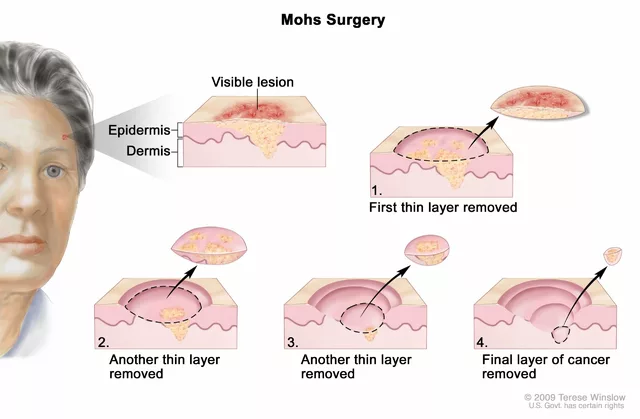
Calcipotriene and Skin Cancer: What You Need to Know
Introduction to Calcipotriene and Skin Cancer
As someone who has always been interested in skin health, I recently came across a topic that I realized not many people may be aware of: calcipotriene and its potential link to skin cancer. In this article, I'll be sharing everything you need to know about calcipotriene, skin cancer, and the possible connection between the two. So, let's dive in and learn more about this important topic!
Understanding Calcipotriene
Calcipotriene is a synthetic derivative of vitamin D that is commonly used as a topical treatment for psoriasis. Psoriasis is a chronic skin condition characterized by raised, red, and scaly patches on the skin. Calcipotriene works by slowing the growth of skin cells, helping to reduce the symptoms of psoriasis and improve the overall appearance of the skin. It is available in various forms, such as creams, ointments, and even solutions, making it easy to apply and use.
What is Skin Cancer?
Skin cancer is the abnormal growth of skin cells and is the most common type of cancer worldwide. There are three main types of skin cancer: basal cell carcinoma, squamous cell carcinoma, and melanoma. Basal cell carcinoma and squamous cell carcinoma are the most common types and are usually not fatal, while melanoma is the most dangerous form of skin cancer and can be deadly if not treated early. Risk factors for developing skin cancer include sun exposure, a family history of skin cancer, and having a fair complexion.
Calcipotriene and Skin Cancer: The Connection
Recent research has suggested a possible link between calcipotriene and an increased risk of skin cancer. Some studies have shown that calcipotriene can promote the growth of certain types of skin cancer cells, while others have found that it may actually help protect against skin cancer. The exact relationship between calcipotriene and skin cancer remains unclear, and more research is needed to fully understand the potential risks and benefits of calcipotriene use.
Calcipotriene as a Treatment for Skin Cancer
Interestingly, some studies have also explored the potential use of calcipotriene as a treatment for certain types of skin cancer. In particular, some research has found that calcipotriene may be effective at treating actinic keratoses, which are precancerous skin lesions that can develop into squamous cell carcinoma if left untreated. By applying calcipotriene to the affected area, it may be possible to reduce the size and number of actinic keratoses and potentially prevent the development of skin cancer.
How to Use Calcipotriene Safely
If you're using calcipotriene to treat psoriasis or another skin condition, it's important to follow your healthcare provider's instructions carefully to minimize any potential risks. This may include applying the medication only to the affected areas of your skin, avoiding sun exposure while using calcipotriene, and monitoring your skin for any signs of skin cancer. Additionally, it's a good idea to discuss any concerns you may have about calcipotriene and skin cancer with your healthcare provider so that you can make an informed decision about your treatment options.
Preventing Skin Cancer
Regardless of whether you're using calcipotriene or not, it's essential to take steps to protect your skin and reduce your risk of developing skin cancer. Some key strategies for skin cancer prevention include wearing sunscreen with an SPF of 30 or higher, seeking shade during peak sun hours, wearing protective clothing, and performing regular skin self-examinations to check for any changes in your skin's appearance. By taking these precautions, you can significantly lower your chances of developing skin cancer in the future.
Conclusion
In conclusion, the relationship between calcipotriene and skin cancer is complex and not yet fully understood. While some research has suggested a potential link between calcipotriene use and an increased risk of skin cancer, other studies have found that it may actually help protect against or even treat certain types of skin cancer. As a person who cares about skin health, I believe it's essential to stay informed about the latest research and to discuss any concerns with your healthcare provider. In the meantime, taking steps to protect your skin and reduce your risk of skin cancer is always a smart choice.





Written by Jakob Fitzroy
My name is Jakob Fitzroy, and I am an expert in pharmaceuticals with a passion for writing. I have dedicated my life to studying medication and understanding how it affects various diseases. My goal is to educate people about the importance of proper drug therapy and prevention methods. I have authored numerous articles, providing valuable insights on medication, its development, and its impact on patients. My driving force is to contribute to the ongoing fight against diseases and improve the overall health and well-being of people around the world.
All posts: Jakob Fitzroy